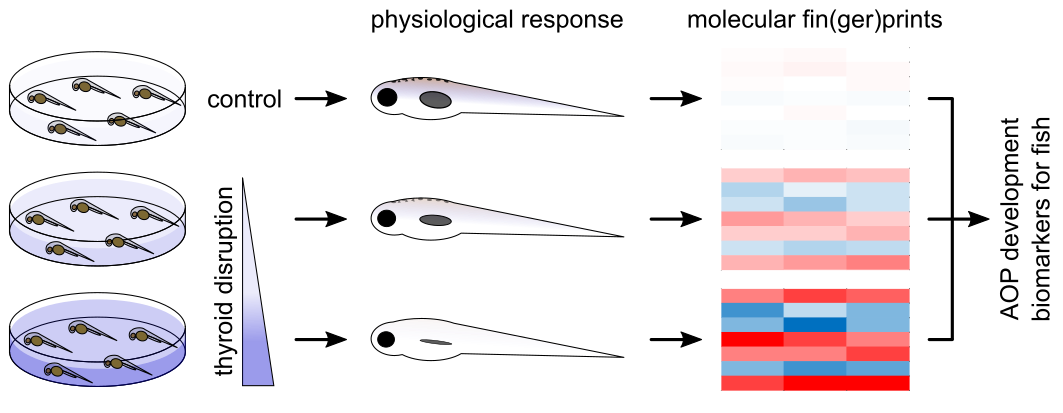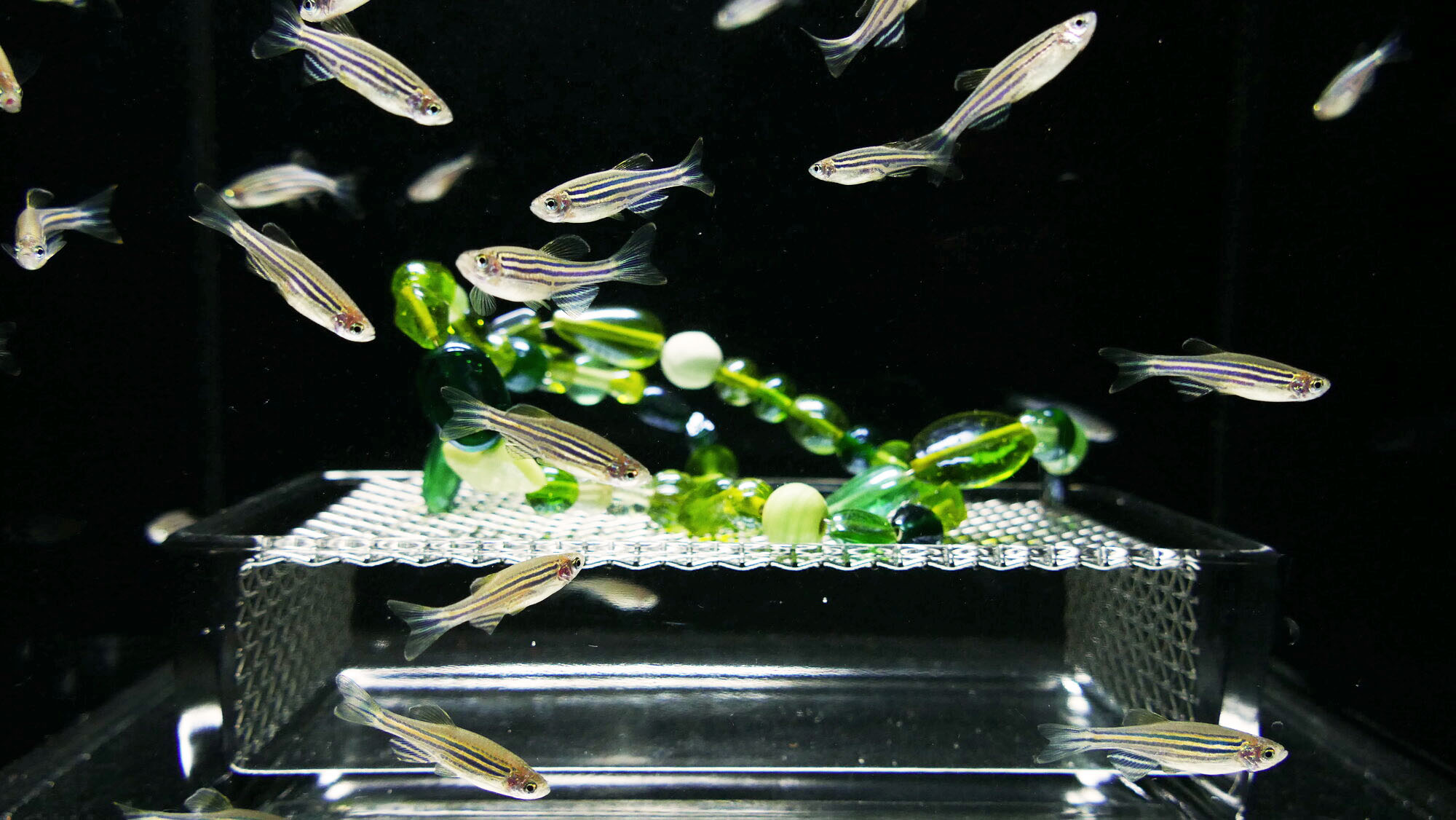Fraunhofer IME Develops a New Fish Multigeneration Test and Advanced Omics Methods for the Detection of Endocrine Disruptors
The research group »Fish Toxicology and Biomarkers« of the Fraunhofer IME has many years of experience in the quality-assured and complex technical implementation of long-term fish studies for the detection of endocrine disruptors. The IME utilizes its broad expertise and knowledge of regulatory requirements to develop a new fish test guideline. To advance the identification of mechanisms of action, the Fraunhofer Attract group Eco‘n‘OMICs is developing tailored Omics tools.

Exposure of aquatic life to substances that can affect the endocrine system of organisms represents a problem, which has gained great importance in the regulation of substances by authorities in recent years.
This concerns plant protection products, industrial chemicals and biocides, as well as veterinary and human medicinal products.
Since the end of 2018, for example, the provision of data on the potential endocrine effect of an active substance has been stipulated for plant protection products as part of the authorisation process. The pressure on the manufacturing companies to generate these data is correspondingly great.
The definition of an endocrine effect by the European Union requires reliable identification of the connection of a hormone-like mechanism of action with the significant impairment of a population-relevant parameter.
Together with the Federal Environment Agency, Fraunhofer IME develops a fish test guideline that meets the above requirements, the Zebrafish Extended One Generation Reproduction Test (ZEOGRT). In this test a complete life cycle of the test fish is investigated:
- the deposition of fertilised eggs by the exposed parental fish
- the early life stage, juvenile adolescents
- the reproductive performance of adult groups
- the survivability of the eggs produced.
The project is part of the OECD‘s work plan for the development of ecotoxicological test guidelines. Four ZEOGRT studies were conducted at the Fraunhofer IME to validate the study type, and external laboratories are involved in the next step.
With this project, the IME further underlines its claim to make significant contributions to guideline development.
Receptor-based mechanisms of action are very well studied. However, endocrine disruptors can potentially interfere at many sites of hormone signalling. The precise identification of endocrine mechanisms and, if necessary, their differentiation from systemic toxicity or other toxic modes of action are an important contribution to a hazard-based assessment strategy. In this context, effects on the thyroid hormone system are currently highly relevant. In ecotoxicology, amphibian tests are carried out to derive effect concentrations. However, current developments are moving towards investigating characteristic parameters in fish models as well.
The Fraunhofer Attract group Eco‘n‘OMICs characterised toxicogenomic signatures of increased and decreased thyroid hormone signalling in zebrafish embryos and identified biomarker candidates to be used in an advanced testing strategy for thyroid disruption in fish.
Fraunhofer IME is also involved in the development of guidelines at the OECD level in connection with such toxicogenomic approaches. These improved research methods offer the possibility to increase the validity of long-term fish studies, to tailor test strategies and thus to reduce animal testing.
Additional Information
Reinwald et al,. 2021: Toxicogenomic fin(ger)prints for thyroid disruption AOP refinement and biomarker identification in zebrafish embryos.
 Fraunhofer-Institut für Molekularbiologie und Angewandte Oekologie IME
Fraunhofer-Institut für Molekularbiologie und Angewandte Oekologie IME


